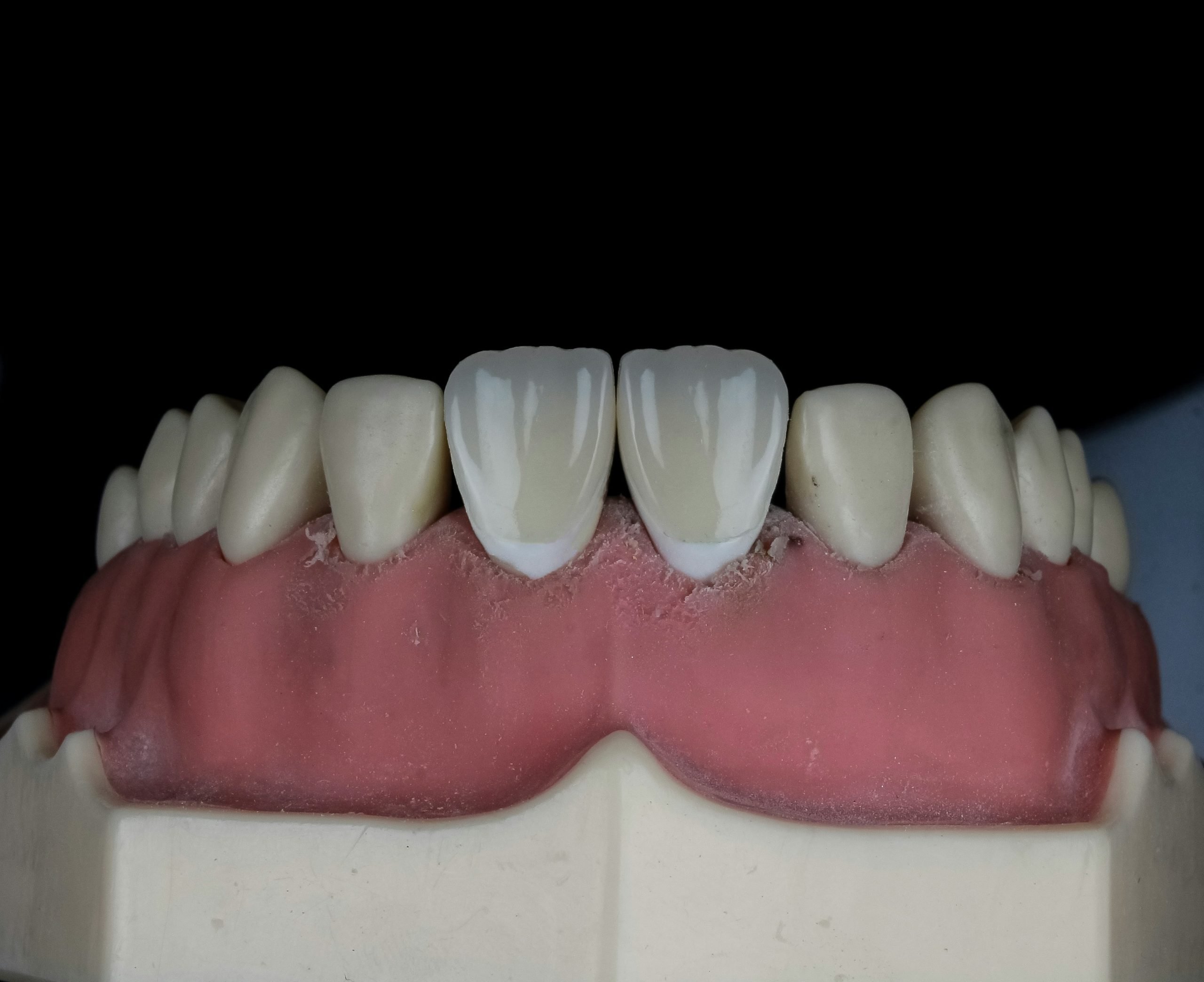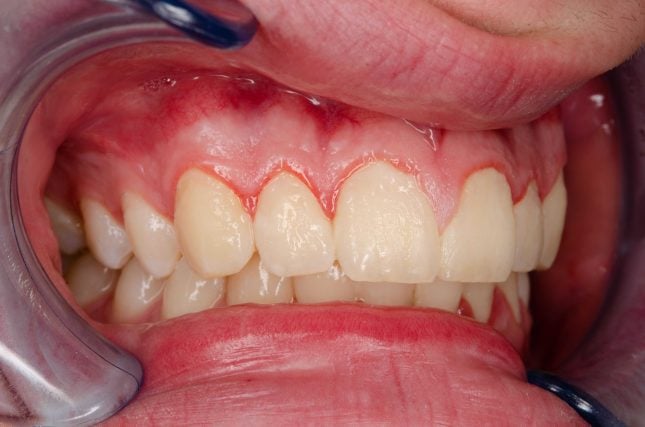How Long Does It Take To Remineralize Teeth?
The time it takes to remineralize teeth depends on the extent of tooth surface demineralization and your daily habits. In many cases, early mineral loss can start to reverse within a few weeks of consistent fluoride use, a mineral-rich diet, and proper oral hygiene. For deeper damage, the process can take several months, and professional treatments—like fluoride varnishes or custom remineralizing gels—can help accelerate results.
Maintaining a neutral oral pH, reducing exposure to acid-forming foods, and supporting saliva production are all essential for steady enamel repair and long-term protection.
What Is Tooth Remineralization—and Why It Matters
Your enamel is the protective outer layer of your teeth. Though it’s the hardest substance in the human body, it faces daily challenges that can gradually weaken this barrier. Every time you eat acidic foods or drink sugary beverages, or when plaque bacteria produce acid, your teeth begin to lose essential minerals—a process called tooth demineralization.
Demineralization and remineralization occur naturally every day. As acids weaken the protective layer, your saliva plays a key role in neutralizing these acids and delivering minerals—mainly calcium and phosphate—back to the enamel surface. This remineralization process helps prevent tooth decay and maintain strong, healthy teeth.
However, when acid exposure outpaces your body’s natural ability to repair, mineral loss can progress, leading to erosion, cavities, and sensitivity. Supporting natural remineralization helps protect your teeth and keep your smile comfortable and resilient. This natural tooth process, called enamel remineralization, is essential to help prevent tooth decay and strengthen the enamel layer of your teeth.
How Demineralization and Tooth Decay Develop
It’s important to understand the connection between demineralization and tooth decay. When plaque—a sticky film of bacteria—accumulates, it feeds on sugars from food and drinks, producing acid as a byproduct. This acid gradually dissolves minerals in the outer layer, creating microscopic weak spots.
Over time, these areas deepen into cavities. Because enamel doesn’t regenerate, the only way to protect and strengthen it is by promoting remineralization and preventing further mineral loss. Consistent brushing, a diet rich in calcium and phosphate, and the use of fluoride toothpaste are some of the most effective methods for remineralizing teeth naturally. This is why remineralization is a natural defense against damage and decay, helping maintain enamel health and prevent lasting harm.
5 Steps to Remineralize Teeth at Home
Whether you prefer professional treatments or home remedies, these steps to remineralize can help rebuild your dental enamel and keep it resilient:
1. Use High Quality Toothpaste Regularly
Fluoride is one of the most effective ingredients to strengthen your teeth. It binds with calcium and phosphate to create fluorapatite, a mineral that’s significantly more resistant to acid. This layer reinforces your protective surface and repairs early signs of decay.
Tips on how to remineralize:
-
Brush your teeth twice daily with fluoride toothpaste.
-
Use a pea-sized amount and avoid rinsing right away so the fluoride remains on the tooth surface.
-
If you’re prone to cavities, ask your dentist about higher-strength fluoride or remineralizing agents.
Fluoride is considered the most proven remineralizing agent and is highly recommended by the American Dental Association to help remineralize your teeth.
2. Limit Acid-Forming Foods and Drinks
Frequent exposure to acidic items—like citrus, soda, and vinegar—weakens your enamel over time and can contribute to enamel erosion.
To protect your smile:
-
Rinse with water after consuming acidic drinks or foods.
-
Wait 30 minutes before brushing to avoid damaging the softened surface.
-
Use a straw when drinking acidic beverages.
These simple adjustments can help prevent tooth decay and maintain your teeth’s natural strength.
3. Encourage Saliva Production
Saliva production plays a vital role in the remineralization process by delivering minerals in your teeth exactly where they’re needed.
To support saliva flow:
-
Chew sugar-free gum with xylitol.
-
Stay hydrated.
-
Avoid excessive caffeine and alcohol, which can lead to dry mouth.
Healthy saliva flow helps aid in tooth remineralization and supports your overall oral health.
4. Eat a Diet Rich in Minerals
A balanced diet rich in nutrients is key to strong teeth. Foods high in calcium, phosphate, and vitamin D provide the building blocks for enamel repair and help protect your teeth against decay.
Great options include:
-
Dairy products (milk, cheese, yogurt)
-
Leafy greens
-
Almonds and sesame seeds
-
Fatty fish (for vitamin D)
Eating nutrient-dense foods helps promote remineralization and reduce the risk of tooth decay.
5. Maintain Consistent Oral Hygiene
Brushing your teeth regularly and flossing daily are essential to remove plaque and prevent acids from weakening your teeth.
Don’t forget:
-
Use a soft-bristled brush to avoid excess wear.
-
Brush twice daily with fluoride toothpaste.
-
Floss to clean between teeth.
-
Schedule regular dental check-ups to catch any early signs of enamel damage.
Good hygiene habits support enamel and help strengthen your teeth long term.
When to See a Dentist About Weak Teeth
Even with excellent care, professional help may be needed. Visit your dentist if you notice:
-
White spots or dull patches
-
Rough or chalky textures
-
Sensitivity to hot, cold, or sweet foods
-
Frequent cavities despite brushing
Early intervention can reduce the risk of tooth decay and support enamel strength for the future.
Professional Dental Treatments to Strengthen Your Teeth
While The Smile Bar Bangkok focuses exclusively on teeth whitening and cosmetic cleaning, other dental clinics in Bangkok offer professional treatments designed to support tooth remineralization and enamel protection, such as:
-
Fluoride Varnishes: Concentrated applications to strengthen enamel and reduce sensitivity.
-
Custom Trays with Remineralizing Gel: Delivering calcium and phosphate deep into demineralized areas.
-
Nano-Hydroxyapatite Products: A biomimetic mineral that helps fill micro-defects in enamel.
If you’re experiencing symptoms of enamel weakness, we recommend visiting a licensed dental clinic that specializes in remineralization treatments.
Remineralization vs. Whitening: What’s the Difference?
Many people confuse remineralizing teeth with whitening.
-
Remineralization helps restore lost minerals and prevent decay.
-
Whitening only lifts stains for a brighter appearance.
If you have weakened enamel, it’s essential to remineralize first before whitening to avoid sensitivity.
Unlike whitening, methods for remineralizing teeth directly rebuild the enamel layer of your teeth for long-term protection.
Common Myths About Remineralizing Teeth
Let’s clear up common misconceptions:
-
Myth: Oil pulling can fully reverse cavities.
-
Fact: While oil pulling may support hygiene, it doesn’t replace minerals.
-
-
Myth: The outer layer can regrow completely.
-
Fact: While it can be strengthened, enamel doesn’t regenerate.
-
-
Myth: Only fluoride matters.
-
Fact: Calcium and phosphate are also critical for effective repair.
-
Concerned about tooth enamel? Start with a professional cleaning.
While The Smile Bar Bangkok doesn’t offer remineralization treatments, our advanced dental cleaning and whitening sessions help remove surface plaque and stains, giving your teeth a visibly healthier and brighter look.
Book your appointment today and enjoy a clean, smooth, and radiant smile.
Conclusion – TL;DR
Tooth remineralization is real—and with the right habits, you can help repair and protect your enamel naturally. Use fluoride toothpaste, eat mineral-rich foods, and boost saliva production to strengthen your teeth over time. For deeper enamel damage, professional treatments may speed up the process and prevent decay.
Frequently Asked Questions
How can I remineralize my teeth naturally?
- You can support natural remineralization by brushing twice daily with fluoride toothpaste, eating foods rich in calcium and phosphate, drinking plenty of water, and chewing sugar-free gum to stimulate saliva. Avoiding frequent snacking on sugary or acidic foods also protects your enamel.
Can you fully remineralize teeth?
- While early enamel damage can often be repaired, severe erosion or cavities cannot be fully reversed and may require dental restorations. Consistent remineralization efforts help stop decay from progressing and strengthen remaining enamel.
What foods help remineralize teeth?
- Calcium-rich foods like cheese, yogurt, leafy greens, almonds, and fatty fish are excellent for enamel health. Dairy products are especially helpful because they neutralize acids and deliver minerals to your teeth.
Does saltwater remineralize teeth?
- Saltwater rinses can help reduce bacteria and soothe irritation, but they don’t replace minerals in enamel. For effective remineralization, you need fluoride, calcium, and phosphate delivered through toothpaste, diet, or professional treatments.
How do teeth remineralize on their own?
- Your saliva plays the biggest role in natural remineralization. It bathes your teeth with calcium and phosphate while neutralizing acids. Supporting healthy saliva flow—by staying hydrated and chewing sugar-free gum—helps maintain this natural repair process.
Can toothpaste remineralize teeth?
- Yes, fluoride toothpaste is one of the most effective ways to remineralize early enamel damage. Some formulas also include nano-hydroxyapatite or calcium phosphates to further reinforce the enamel surface.
How does xylitol help remineralize teeth?
- Xylitol is a natural sweetener that reduces cavity-causing bacteria and stimulates saliva production. More saliva means more minerals are available to help rebuild weakened enamel and protect your teeth from decay.











